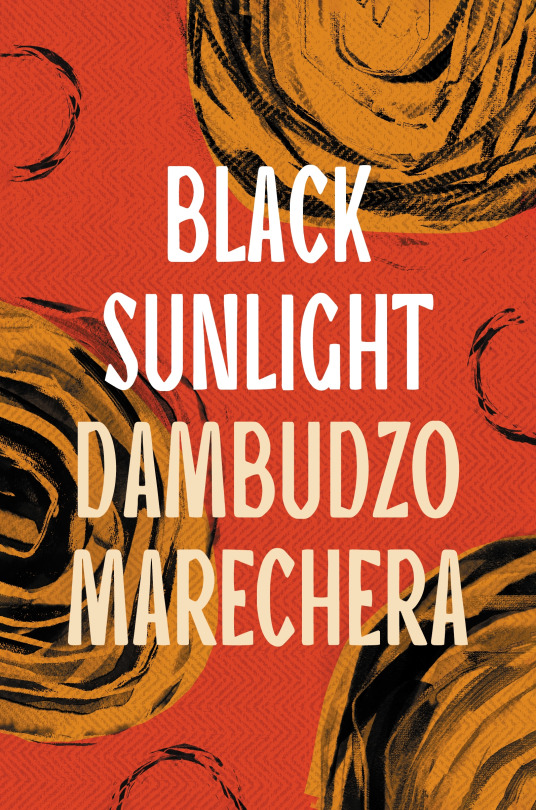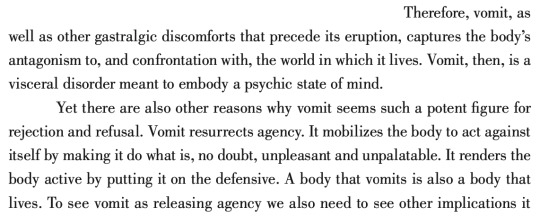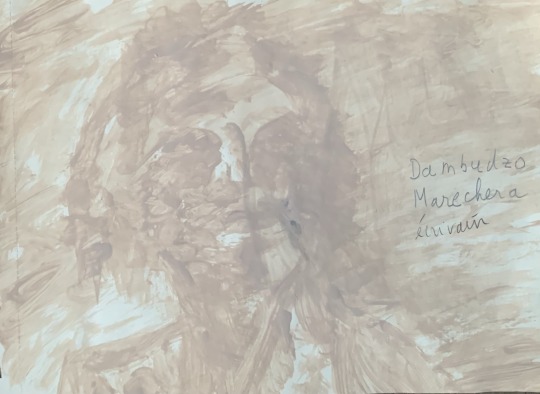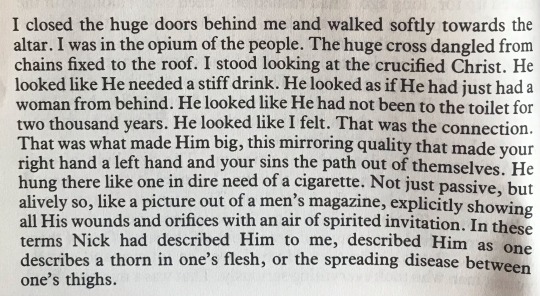#Dambudzo Marechera
Text
I took to the English language as a duck takes to water. I was therefore a keen accomplice and student in my own mental colonization.
The House of Hunger by Dambudzo Marechera
14 notes
·
View notes
Text
This weekend I set out to finish the last ~200 pages of Dhalgren by Samuel Delaney (1979)...and I succeeded! Got home on Friday around 1500 and read until I fell asleep, then woke up around 0530 on Saturday and didn't stop reading until I was done.
I'm still unpacking a lot of it since there's a whole lot going on, but I very much enjoyed it. It's in a 3-way tie with Moby Dick by Herman Melville and Piranesi by b Susannah Clarke for Best Book I've Ever Read.
One thing that really stood out was the focus on how easy it is to end up so tangled up by other peoples' narratives to the point that you end up feeling like you live in multiple realities at once. It really dovetails with thoughts I've been having lately about how much of who we are as "individuals" comes from us accepting or rejecting the perception of others. The feeling of realizing you're being forced into a role in society's narrative against your will is all too familiar.
I also respect the way Dhalgren's story doesn't just avoid easy answers but constantly burns bridges to sense. I could almost imagine Delaney chuckling as he found ways to answer a reader's questions in a way that only left more questions. I do feel like I came away finally understanding what people mean when they discuss postmodern literature.
Next up is Beloved by Toni Morrison, then Book of The New Sun by Gene Wolf, and after that I'll probably read Stars in my Pocket Like Grains of Sand by Samuel Delaney, or maybe The House of Hunger by Dambudzo Marechera.
#Samuel Delaney#dhalgren#postmodernism#literature#sci fi#science fiction#classic#Gene Wolf#Book of The New Sun#Dambudzo Marechera#The House of Hunger#Toni Morrison#Beloved
5 notes
·
View notes
Text

Black Sunlight
By Dambudzo Marechera.
0 notes
Text



ewa macura-nnamdi, ‘the alimentary life of power’
#in relation to dambudzo marechera's the house of hunger#and specifically in relation to colonialism and colonial power and how marechera uses the imagery of digestion and regurgitation#the house of hunger
53 notes
·
View notes
Text
Dambuzo Marechera
A writer who considered fiction a ‘form of combat’, his work is complex, challenging – and uniquely potent
Dambudzo Marechera (born 1952, Rusape, Southern Rhodesia [now Zimbabwe]—died Aug. 18, 1987, Harare, Zimbabwe) Zimbabwean novelist who won critical acclaim for his collection of stories entitled The House of Hunger (1978), a powerful account of life in his country under white…

View On WordPress
0 notes
Text
The Doorway, A Gullet: Home as a Body in Dambudzo Marechera’s The House of Hunger
in case yall aren't as broadly interested in houses as bodies. um. well why r you here anyway heres the larger link 2 the full paper i miss college im probably gonna put up more of my papers when i get a chance
6 notes
·
View notes
Text
2023 reading wrap up
I read 45 books this year, including one for work. I don't typically include those but I was working with the translation of a book and so it had technically already come out so I decided to put it on Goodreads. I have however not included it in this wrapup, so there's only 44 of them here.
Classics (8)
1 - ⭐⭐⭐⭐⭐
2 - ⭐⭐⭐⭐
5 - ⭐⭐⭐
The Bell Jar by Sylvia Plath (reread) ⭐⭐⭐⭐
Giovanni’s Room by James Baldwin (queer, reread) ⭐⭐⭐⭐
Madeline by Ludwig Bemelmans (e, childrens) ⭐⭐⭐⭐⭐
The Grey Woman by Elizabeth Gaskell (au) ⭐⭐⭐
Play It as It Lays by Joan Didion (modern) ⭐⭐⭐
The House of Hunger by Dambudzo Marechera ⭐⭐⭐
Slow Days, Fast Company by Eve Babitz (modern) ⭐⭐⭐
Teleny by Anonymous (queer) ⭐⭐⭐
Poetry (4)
1 - ⭐⭐⭐⭐⭐
2 - ⭐⭐⭐⭐
1 - ⭐⭐⭐
Dancing in Odessa by Ilya Kaminsky (e) ⭐⭐⭐
Closer Baby Closer by Savannah Brown (e) ⭐⭐⭐⭐
The Carrying by Ada Limón (au/ph) ⭐⭐⭐⭐
Things You May Find Hidden In My Ear by Mosab Abu Toha (e) ⭐⭐⭐⭐⭐
Romance (2)
1 - ⭐⭐⭐⭐⭐
1 - ⭐⭐⭐
The Duke and I by Julia Quinn (au) ⭐⭐⭐
Red White and Royal Blue by Casey McQuiston (reread, queer) ⭐⭐⭐⭐⭐
Non-fiction (10)
3 - ⭐⭐⭐⭐⭐
5 - ⭐⭐⭐⭐
2 - ⭐⭐⭐
Letters to Camondo by Edmund De Waal ⭐⭐⭐⭐⭐
Det är natten by Karolina Ramqvist (sv, e) ⭐⭐⭐
En bok av dagar by Patti Smith (tr) ⭐⭐⭐⭐
My Salinger Year by Joanna Rakoff ⭐⭐⭐⭐
A Kind of Magic by Luke Edward Hall ⭐⭐⭐⭐⭐
Blir du ledsen om jag dör? by Nicolas Lunabba (sv) ⭐⭐⭐⭐⭐
Krigsdagböcker by Astrid Lindgren (sv) ⭐⭐⭐⭐
Dagbok från 20-talet by Nicolas Lunabba (sv) ⭐⭐⭐
The Forster Cavafy Letters edited by Peter Jeffreys ⭐⭐⭐⭐
Greco Disco by Luke Edward Hall ⭐⭐⭐⭐
Fantasy (1)
1 - ⭐⭐⭐⭐
Percy Jackson and the Lightning Thief by Rick Riordan (au, ph) ⭐⭐⭐⭐
Contemporary (19)
1 - ⭐⭐⭐⭐⭐
8 - ⭐⭐⭐⭐
9 - ⭐⭐⭐
Big Swiss by Jen Beagin (queer, au) ⭐⭐⭐⭐
Kärlek i Seoul by Sang Young Park (queer, tr, au) ⭐⭐⭐
Andromeda by Therese Bohman (sv) ⭐⭐⭐⭐
Min Far by Annie Ernaux (tr) ⭐⭐⭐
Göra sig kvitt Eddy Bellegueule Édouard Louis (queer, tr) ⭐⭐⭐
Norwegian Wood by Haruki Murakami (au) ⭐⭐⭐
After Sappho by Selby Wynn Schwartz (queer) ⭐⭐⭐⭐
Babetta by Nina Wähä (au, sv) ⭐⭐⭐⭐
My Policeman by Bethan Roberts (queer) ⭐⭐⭐
Rumple Buttercup by Matthew Gray Gubler (e, childrens) ⭐⭐⭐⭐
Aftonland by Therese Bohman (sv) ⭐⭐⭐
Om uträkning av omfång 1 by Solvej Balle (tr, au) ⭐⭐⭐⭐
Commonwealth by Ann Patchett ⭐⭐⭐⭐
The Adventures of the Seven Christmas Cards by Anthony Horowitz (au) ⭐⭐⭐
Vinternoveller by Ingvild H. Rishøi (tr) ⭐⭐⭐
Heartstopper volume 5 by Alice Oseman (queer, YA) ⭐⭐⭐⭐⭐
Stargate by Ingvild H. Rishøi (tr, au) ⭐⭐⭐⭐
In the Absence of Men by Philippe Besson (queer, tr) ⭐⭐⭐
Saint Sebastian’s Abyss by Mark Haber (au) ⭐⭐⭐
Additional info and stats under the cut:
e = ebook
au = audiobook
ph = physical (only used when I alternated between the audiobook and the physical copy)
tr = translated
sv = originally in Swedish
Childrens - 2
YA - 1
Middle grade - 1
Graphic novel - 1
Modern classics - 2
Translated - 8 (Korean, English, French x3, Danish x1, Norwegian x2)
Swedish - 7
Audio - 12
E-book - 6
Rereads - 3
Queer - 8
5 stars - 7
4 stars - 18
3 stars - 19
Owned - 30 + bought 1 as e-book)
Unhauled after reading - 8
9 notes
·
View notes
Note
Have you read much African literature (apart from Coetzee?)
I confess (if this is a topic requiring confessions) that it hasn't been an area of focus for me. I've one read novel each by Achebe (Things Fall Apart), Salih (Season of Migration to the North), and Gordimer (The Pickup). I've read Soyinka's most famous play, Death and the King's Horseman, his state-of-the-world Reith Lectures (Climate of Fear), and a handful of his other essays on art, culture, and politics. I read Okey Ndibe's Foreign Gods, Inc., and then went to hear the author speak down the street at the Soap Factory, when it still existed; he and his book are very funny. I've read (I even taught) Phaswane Mpe's Welcome to Our Hillbrow; my friend from South Africa, Maurits, now a professor at the University of the Western Cape, pressed it upon me in graduate school after I conceded I'd only read Gordimer and Coetzee. And Alan Paton. We read Cry, the Beloved Country in high school; I think it counted as the non-European selection in 12th-grade world literature. If the colonial diaspora in Africa counts, I've read Olive Schreiner (Woman and Labour) and Doris Lessing (The Golden Notebook); if the postcolonial diaspora in America and Europe counts, I've read Chris Abani (The Virgin of Flames), Teju Cole (Open City), and Marguerite Abouet (Aya de Yopougon). To what continent of the mind does Cavafy's Alexandria belong? Perhaps neither to Africa nor to Europe, to no land at all, but to the Mediterranean Sea. Nevertheless, I have read Cavafy's Collected Poems. Some of Senghor's poetry, too, and his "Negritude: A Humanism of the Twentieth Century." Some of Ngũgĩ's polemics also, e.g., Decolonising the Mind, but not yet one of his novels: illustrating the geographic inequality still obtaining in what our Marxist friends call the "system" of world literature, I keep waiting for the call from Stockholm to impel me, though I do suspect the Swedes gave his prize away to his lesser-known exegete, Abdulrazak Gurnah. I want to read Gurnah's Paradise along with Ngũgĩ's Devil on the Cross. If only for a final reckoning with Marxism, I want to read Burger's Daughter by Gordimer. I know I have to read Bessie Head someday. Soyinka's seems a sensibility as bottomless as that of Joyce or Borges, so I know I have to go back to him, to all the plays and to The Interpreters and Aké and Art, Dialogue, and Outrage. I must return to Egypt—not to Cavafy's Alexandria next time, but to Mahfouz's Cairo, where I fear I've never been. Nuruddin Farah and I used to shop at the same grocery store, but I still need to read him. The to-read list goes on: Mia Couto, Christopher Okigbo, and especially Dambudzo Marechera, whose experimental and anarchic works I've only browsed, but whose cosmopolitan motto I admire: "If you are a writer for a specific nation or a specific race, then fuck you." And a book I should have read 20 years ago, 25 years ago—they should have just made us read it in Catholic school—which I still keep meaning to get to: the Confessions of St. Augustine.
5 notes
·
View notes
Text
‘Like Fanon and others, we use the metropolitan languages and turn them upside down, until it screams your screams.’
— Dambudzo Marechera
28 notes
·
View notes
Text
TOC: Babel Vol. 69, No. 3 (2023)
ICYMI: 2023. iv, 131 pp.
Table of Contents
Articles
Do education and the labor market speak the same language? Challenges of the ESCO European classification of occupations in mapping today’s professional translators
Natividad Aguayo-Arrabal
pp. 305–332
Traducir literatura africana poscolonial: El caso de “Miedo y asco a salir de Harare”, de Dambudzo Marechera
María Remedios Fernández-Ruiz
pp. 333–352
Translations of Alice in Wonderland in the Sinosphere: Outward Adventures or homecoming tales?
Li http://dlvr.it/Svsclz
0 notes
Text
"Unyielding Spirit: Zimbabwean Heroes and Heroines in the Pursuit of Transformation"
In the realm of hardships, where poverty casts its heavy veil upon our land, I hold deep respect for every Zimbabwean soul, toiling ceaselessly day and night. We find ourselves entrenched in a nation besieged by destitution, where the vast majority, if not all, who dwell in the realm of the impoverished, languish in its suffocating grip. These days, both yesterday and today, serve as poignant reminders of the indomitable spirit that courses through the veins of many Zimbabweans.
Truly, we are the unsung heroes and heroines, entangled in the intricate webs of political quagmires and economic tribulations. Yet, with unwavering determination, we press on, striving to make ends meet in a country plagued by corruption, soaring unemployment rates, economic turmoil, political unrest, and the relentless persecution of those who dare to speak up. Men and women, girls and boys, have played instrumental roles in the positive transformation of our nation, though their efforts often go unnoticed. It is not solely the veterans of the liberation struggle to whom we owe our gratitude, for even the born frees have contributed their part.
The absence of participation in armed conflict should not be a cause for condemnation, but alas, it becomes a burden when one finds themselves persecuted for not shouldering the burden of war. Among us, there exists a multitude of individuals who have tirelessly worked to make Zimbabwe a better nation. Today, I find it fitting to pay homage to the musicians, both mortal and immortal, who have labored to bring about positive change in our beloved land. Let us recognize the contributions of figures like Oliver Mtukudzi, Thomas Mapfumo, Simon "Chopper" Chimbetu, Leonard Dembo, Chiwoniso Maraire, and countless others who have used their melodies to inspire and uplift.
In the realm of literature, we encounter the luminous presence of Dambudzo Marechera, David Mungoshi, Charles Mungoshi, Tsitsi Dangarembga, and their peers. These literary gurus have fearlessly wielded their pens, painting vivid portraits that illuminate the pursuit of freedom for the black man. Their unwavering efforts, often underappreciated, have served as beacons guiding us towards a brighter future.
Let us channel the spirit of God, embracing his boundless creativity, as we acknowledge the multitude of Zimbabweans who have fervently supported the transformation of our nation. Together, we stand united, a tapestry woven from the threads of resilience and hope. May the credit and recognition they deserve be bestowed upon their weary shoulders, and may their unwavering dedication continue to shape Zimbabwe into a beacon of progress and prosperity.
Written by Daniel Mizu.
1 note
·
View note
Text
What can a house tell us about the person who lives there? Do we shape the buildings we live in, or are we formed by the places we call home? And why are we especially fascinated by the houses of the famous and often long-dead? In Lives of Houses, notable biographers, historians, critics, and poets explores these questions and more through fascinating essays on the houses of great writers, artists, composers, and politicians of the past.
Editors Kate Kennedy and Hermione Lee are joined by wide-ranging contributors, including Simon Armitage, Julian Barnes, David Cannadine, Roy Foster, Alexandra Harris, Daisy Hay, Margaret MacMillan, Alexander Masters, and Jenny Uglow. We encounter W. H. Auden, living in joyful squalor in New York’s St. Mark’s Place, and W. B. Yeats in his flood-prone tower in the windswept West of Ireland. We meet Benjamin Disraeli, struggling to keep up appearances, and track the lost houses of Virginia Woolf and Elizabeth Bowen. We visit Benjamin Britten in Aldeburgh, England, and Jean Sibelius at Ainola, Finland. But Lives of Houses also considers those who are unhoused, unwilling or unable to establish a home—from the bewildered poet John Clare wandering the byways of England to the exiled Zimbabwean writer Dambudzo Marechera living on the streets of London.
With more than forty illustrations, Lives of Houses illuminates what houses mean to us and how we use them to connect to and think about the past. The result is a fresh and engaging look at house and home.
Featuring
●Alexandra Harris on moving house
● Susan Walker on Morocco’s ancient Roman House of Venus
● Hermione Lee on biographical quests for writers’ houses
● Margaret MacMillan on her mother’s Toronto house
● a poem by Maura Dooley, “Visiting Orchard House, Concord, Massachusetts”—the house in which Louisa May Alcott wrote and set her novel Little Women
● Felicity James on William and Dorothy Wordsworth’s Dove Cottage
● Robert Douglas-Fairhurst at home with Tennyson
● David Cannadine on Winston Churchill’s dream house, Chartwell
● Jenny Uglow on Edward Lear at San Remo’s Villa Emily
● Lucy Walker on Benjamin Britten at Aldeburgh, England
● Seamus Perry on W. H. Auden at 77 St. Mark’s Place, New York City
● Rebecca Bullard on Samuel Johnson’s houses ● a poem by Simon Armitage, “The Manor”
● Daisy Hay at home with the Disraelis
● Laura Marcus on H. G. Wells at Uppark
● Alexander Masters on the fear of houses
● Elleke Boehmer on sites associated with Zimbabwean writer Dambudzo Marechera
● Kate Kennedy on the mental asylums where World War I poet Ivor Gurney spent the last years of his life
● a poem by Bernard O’Donoghue, “Safe Houses”
● Roy Foster on W. B. Yeats and Thoor Ballylee
● Sandra Mayer on W. H. Auden’s Austrian home
● Gillian Darley on John Soane and the autobiography of houses
● Julian Barnes on Jean Sibelius and Ainola
1 note
·
View note
Note
Hey there lovely chap, how’s uni work treating you, are you doing any texts that are really making you tick? Sending love xx
hello, friend– it's been a bit of a struggle as of late, but i think i'm back on top of it now. recently i've been interested in the whistler v. ruskin libel case, as we've been looking at linda merrill's a pot of paint in my module on the art in the victorian marketplace. i've also been reading dambudzo marechera's the house of hunger in my decolonial literature unit– and, of course, i've just read marlowe's edward ii at my dissertation supervisor's behest after years of meaning to. i can feel it shifting something vital in me already
0 notes
Text
La casa del hambre (FINAL)
La casa del hambre (FINAL)
Dambudzo Marechera
El chasquido de la alambrada
Una ira ciega se apoderó de él. Le quemaba el cerebro. El policía lo miraba con recelo. A lo lejos, tras el muro de hormigón, retumbaba la música y se oían gritos hilarantes, voces divirtiéndose. Lo echaron del concierto e intentó saltar el muro para colarse por la puerta de atrás. Fue entonces cuando le temblaron las rodillas al ver al policía.…

View On WordPress
2 notes
·
View notes
Text
July in books
Copying @earlymoderngothic and doing a little reading wrap up for July!
I would say that I truly found my way back to reading for fun again in July, which makes me so happy! Granted a few of these I’d started earlier and just finished last month, but I’m glad that I kept up with my current stack too and didn’t just pick new reads.
My Salinger Year by Joanna Rakoff (4 stars)
Norwegian Wood by Haruki Murakami (3 stars)
Play It as It Lays by Joan Didion (3 stars)
After Sappho by Selby Wynn Schwartz (4 stars)
A Kind of Magic by Luke Edward Hall (5 stars)
The House of Hunger by Dambudzo Marechera (3 stars)
All of the book were books I owned while reading, and out of all of them After Sappho was the one I listened to fully on audio. It was a pretty good reading month all in all!
11 notes
·
View notes
